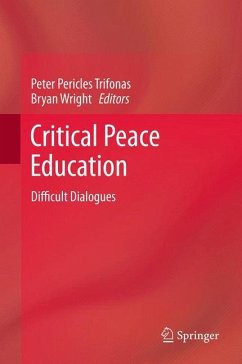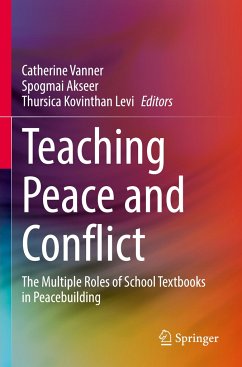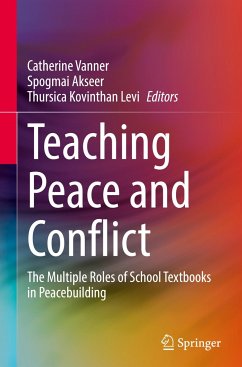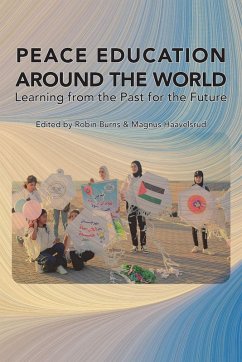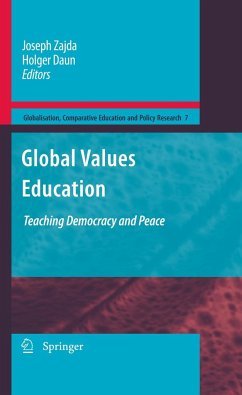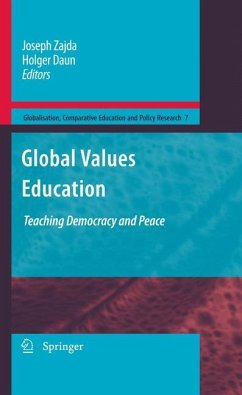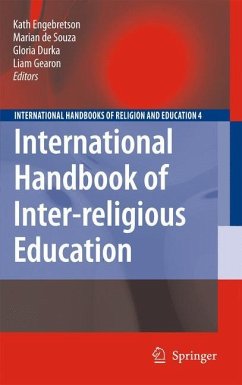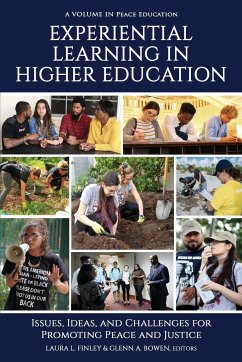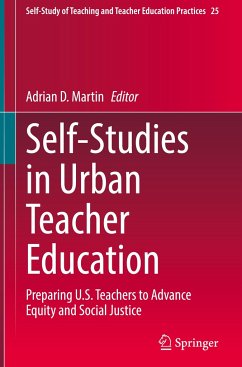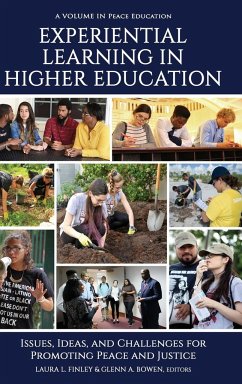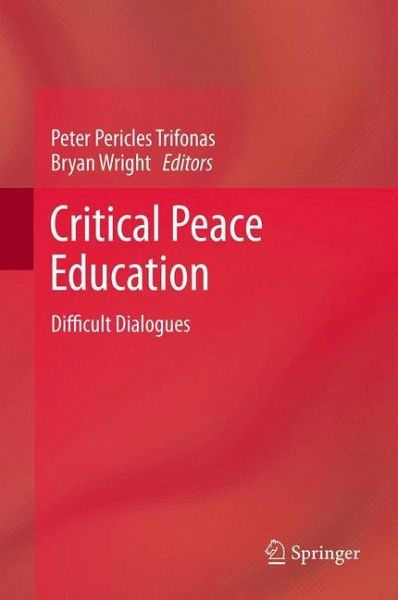
Critical Peace Education
Difficult Dialogues
Herausgegeben: Trifonas, Peter Pericles; Wright, Bryan
Versandkostenfrei!
Versandfertig in 6-10 Tagen
113,99 €
inkl. MwSt.

PAYBACK Punkte
57 °P sammeln!
Forward-thinking pedagogues as well as peace researchers have, in recent decades, cast a critical eye over teaching content and methodology with the aim of promulgating notions of peace and sustainability in education. This volume gives voice to the reflections of educational theorists and practitioners who have taken on the task of articulating a 'curriculum of difference' that gives positive voice to these key concepts in the pedagogical arena. Here, contributors from around the world engage with paradigm-shifting discourses that reexamine questions of ontology and human subjectivity-discour...
Forward-thinking pedagogues as well as peace researchers have, in recent decades, cast a critical eye over teaching content and methodology with the aim of promulgating notions of peace and sustainability in education. This volume gives voice to the reflections of educational theorists and practitioners who have taken on the task of articulating a 'curriculum of difference' that gives positive voice to these key concepts in the pedagogical arena. Here, contributors from around the world engage with paradigm-shifting discourses that reexamine questions of ontology and human subjectivity-discourses that advocate interdisciplinarity as well as the reformulation of epistemological boundaries. Deconstructing the origins and limits of human knowledge and learning, the book affords educators the opportunity to identify and express common elements of the subjects taught and studied in educational institutions, elements that facilitate students' apprehension of peace and sustainability.
With penetrating analysis of contemporary issues in the field, this volume introduces a range of fresh theoretical approaches that extend the boundaries of peace education, which is broadly defined as promoting the responsible, equitable and sustainable co-existence of differing human communities. In doing so, the chapters show how we can improve our lives as well as our chances of survival as a species by acknowledging the importance of shared human aspirations that cut across borders, of genuinely listening to alternative voices and opinions, of challenging the ubiquitous, socially constructed historical narratives that define human relations only in terms of power. Charged with vitality and originality, this new publication is a critical examination of issues central to the development and utility of global education.
With penetrating analysis of contemporary issues in the field, this volume introduces a range of fresh theoretical approaches that extend the boundaries of peace education, which is broadly defined as promoting the responsible, equitable and sustainable co-existence of differing human communities. In doing so, the chapters show how we can improve our lives as well as our chances of survival as a species by acknowledging the importance of shared human aspirations that cut across borders, of genuinely listening to alternative voices and opinions, of challenging the ubiquitous, socially constructed historical narratives that define human relations only in terms of power. Charged with vitality and originality, this new publication is a critical examination of issues central to the development and utility of global education.



